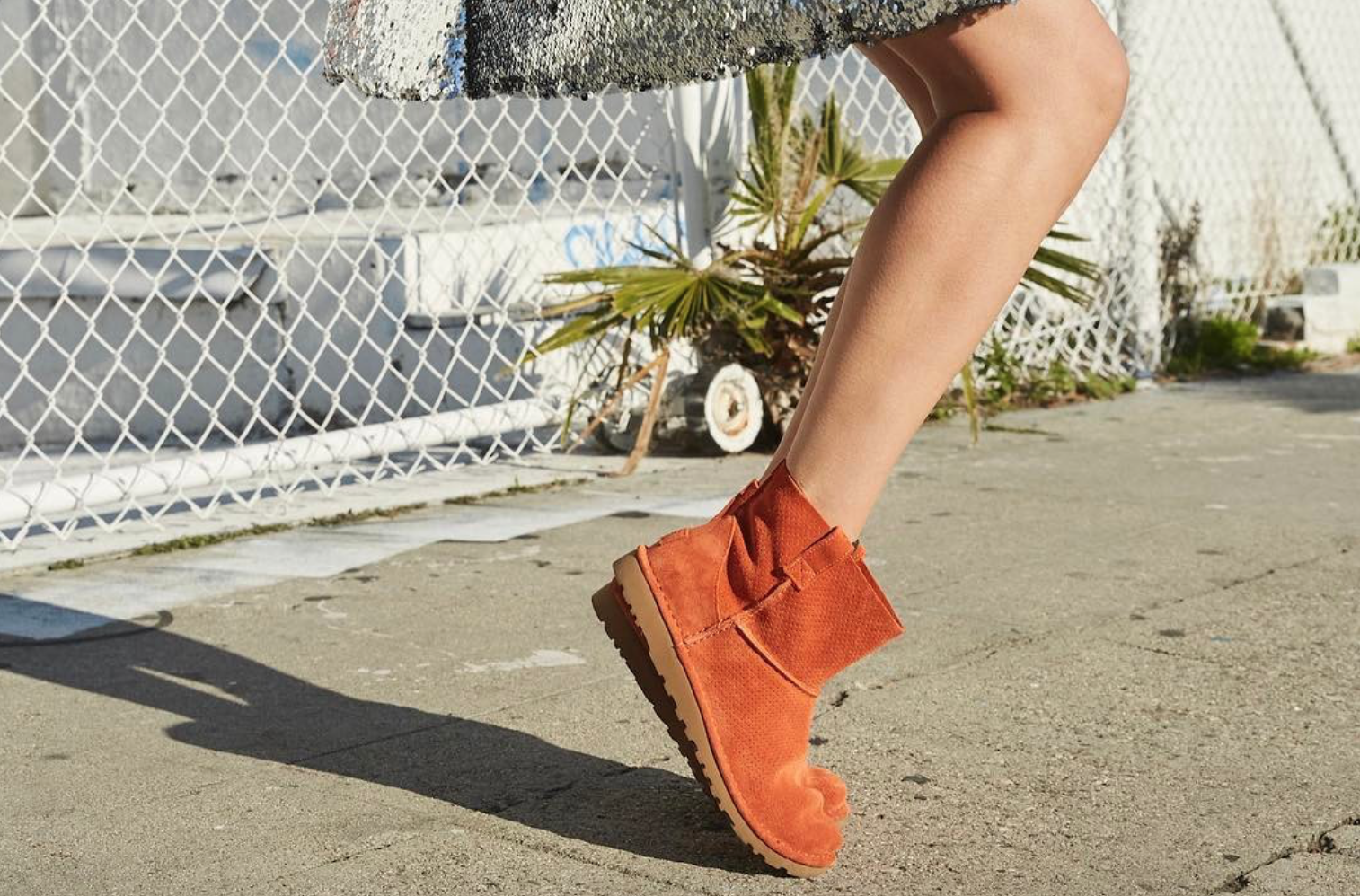
image: UGG
Sydney-based Australian Leather sells 50,000 pairs of sheepskin boots per year, at most. Compare that to UGG (formerly UGG Australia), the Oprah-endorsed, celebrity-favored California brand, which was selling a pair if its Classic Boots every 8 seconds in the mid-2000’s. The sheer difference in distribution makes the strongly-worded lawsuit that UGG’s parent company, Deckers, filed against Australian Leather for trademark infringement seem like nothing more than an unevenly matched, and downright unreasonable, David v. Goliath match.
But there is more to this battle than that.
In Australia, the word ” Ugg” is said to be generic term for a sheepskin boots. Across the globe in the U.S., it is a multi-billion dollar business for UGG, the Los Angeles-based company put on the map and the feet of millions when Oprah included the boots on her annual “Favorite Things” list in 2005, after which the brand says it experienced ” exponential growth in popularity and recognizably.”
While UGG only came on the radar of most American consumers thanks to Oprah’s endorsement and the subsequent adoption by celebrities, the U.S. Olympic team, and Sex and the City’s Carrie Bradshaw, alike, the boot, itself, is said to have been around since the 1930’s, and popular amongst surfers, who slipped on the ugly-yet-warm boot after a winter surf session. The boots have found some similar usages in the U.S., but largely existed, in the mid-2000’s, at least, as an ugly-yet-fashionable winter shoe.
UGG, which was founded in 1978 by Australian surfer Brian Smith and his partner Doug Jensen, and acquired by California-based footwear distributor Deckers, in 1995, has embarked on a rigorous legal journey. The company has acquired a handful of valuable trademarks (including for its name, “UGG”) and design patents, and religiously enforcing those rights against alleged infringers, of which there is no shortage.
Deckers v. Australian Leather
One such fight: The trademark infringement battle that UGG initiated against Australian Leather, a company that is also in the business of making Ugg boots. Unlike LA-based UGG, Australian Leather, which was founded in 1982, is based in Sydney and exports its sheepskin “uggboots” to the U.S., something UGG would like to put a stop to.
According to its complaint, which was filed in federal court in Illinois in March 2016, in addition to millions of dollars in damages, UGG Australia has asked the court to force Australian Leather to limit the sales of its Australian-made boots to Australia and New Zealand in order to not interfere with the sales of UGG’s lookalike boots and their trademark-protected name.
But Australian Leather is not only not going down without a fight, it has escalated the lawsuit to a full-blown battle over the validity of UGG’s enormously valuable trademark.
Yes, Adnan “Eddie” Oygur, 56, the founder of Australian Leather, is fighting back. In the latest row between the parties – Oygur waged war with the Australian Competition and Consumer Commission last year, alleging that Deckers made false and misleading representations by using the name UGG Australia, when its products were actually made in China. UGG has since agreed to drop “Australia” from its name – he has asked the court to cancel a number of UGG’s U.S. trademark registrations. He alleges that “Ugg” s little more than a generic term used to describe this exact type of Australian boot and thus, UGG should not be permitted to maintain a monopoly over it.
Oygur – who has the backing of an Australian senator, Nick Xenophon, who says, “If the French can protect ‘Champagne’, the Portuguese ‘Port’, the Spanish ‘Sherry’ and the Greeks ‘Feta,’ then surely Australia can protect the word ‘Ugg.’” – asserts that “Ugg” is a term so inherently tied to Australia that it should be protected as such and not open to trademark registrability.
“uggs” Before “Uggs”
He argues that before “uggs” were “Uggs,” they existed in the U.S., dating back to the 1960’s, or almost 20 years before Brian Smith and Doug Jensen founded their company and federally registered the name as a trademark, the latter of which occurred in 1985. This argument is central to Oygur’s argument, as in the U.S., trademark rights go to the first party to actually make actual use of a trademark (a name, logo, etc.) in commerce and not the first party to file a registration with the U.S. Patent and Trademark Office.
If Oygur’s legal team can show that the term “ugg” was being used in connection with boots in the U.S. prior to UGG’s use of the name, then he has a shot at overturning the brand’s federal trademark registrations, which act to essentially grant UGG a monopoly over the word in connection with footwear.
As of early this year, the case was not falling in Oygur’s favor, after the court refused to grant his motion to dismiss. Oygur argued that the U.S. court lacked personal jurisdiction over him as an Australian citizen, but the court held that “Oygur will be significantly involved in this case [as the owner and managing director of Australian Leather] regardless of the claims against him personally.”
With trial slated for next year, a spokesman for Deckers said the company “is confident in its position and looks forward to presenting its case in court.” As for Oygur, he says a settlement is out of the question, and he plans “to take this right to the end, even if it means selling my property, getting an overdraft, I’m willing to do that.”
* The case is Deckers Outdoor Corporation v. Australian Leather Pty Ltd, 1:16-cv-03676 (N.D.Ill.).







